#kurt vonnegut jr
Text
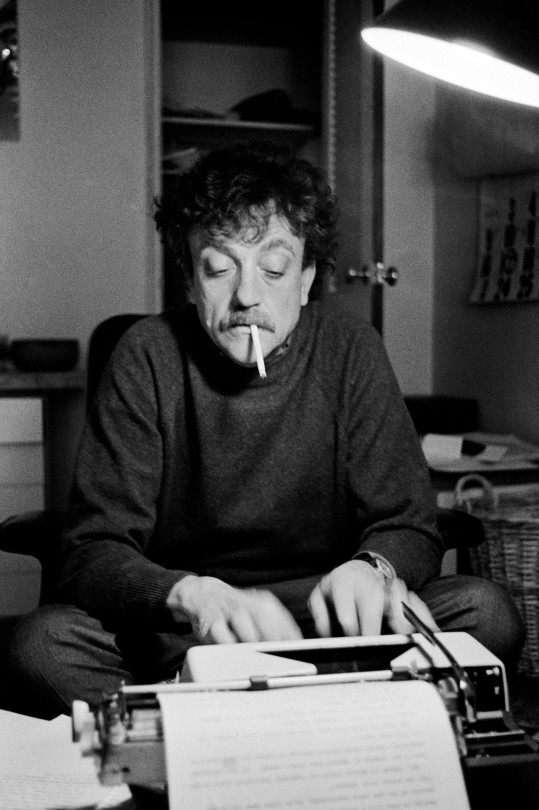

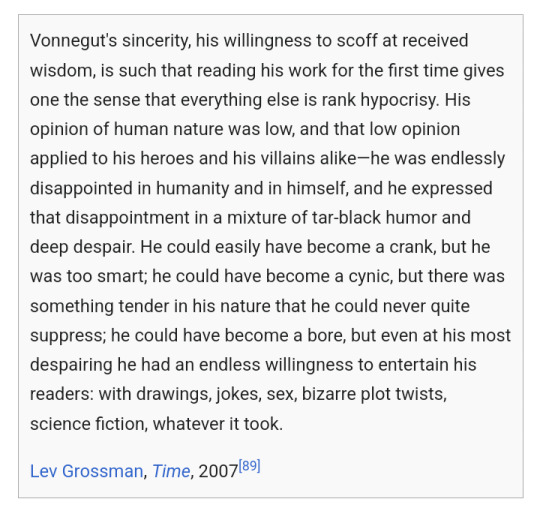
Obligatory Kurt Vonnegut appreciation post.
2 notes
·
View notes
Text

There is no reason why good cannot triumph as often as evil. The triumph of anything is a matter of organization. If there are such things as angels, I hope that they are organized along the lines of the Mafia.
― Kurt Vonnegut The Sirens of Titan
36 notes
·
View notes
Text
Kurt Vonnegut, Jr: Moderate giftedness
“Moderate giftedness has been made worthless by the printing press and radio and television and satellites and all that. A moderately gifted person who would have been a community treasure a thousand years ago has to give up, has to go into some other line of work, since modern communications put him or her into daily competition with nothing but world’s champions.”
—Kurt Vonnegut, Jr., novelist…
View On WordPress
#community treasure#gifted person#giftedness#Kurt Vonnegut#kurt vonnegut jr#modern communications#novelist#printing press#radio#satellites#television
2 notes
·
View notes
Quote
I still quote Eugene Debs (1855-1926), late of Terre Haute, Indiana, five times the Socialist Party’s candidate for President, in every speech:
“While there is a lower class I am in it, while there is a criminal element I am of it; while there is a soul in prison, I am not free.”
In recent years, I’ve found it prudent to say before quoting Debs that he is to be taken seriously. Otherwise many in the audience will start to laugh. They are being nice, not mean, knowing I like to be funny.
But it is also a sign of these times that such a moving echo of the Sermon on the Mount can be perceived as outdated, wholly discredited horsecrap.
Which it is not.
Kurt Vonnegut - Timequake
16 notes
·
View notes
Text
youtube
Kurt Vonnegut: Unstuck in Time
documentary film about Kurt Vonnegut Jr.
2 notes
·
View notes
Photo

#quotes#Kurt Vonnegut jr#we'll go down in history#first society that wouldn't save itself#cost-effective
3 notes
·
View notes
Text
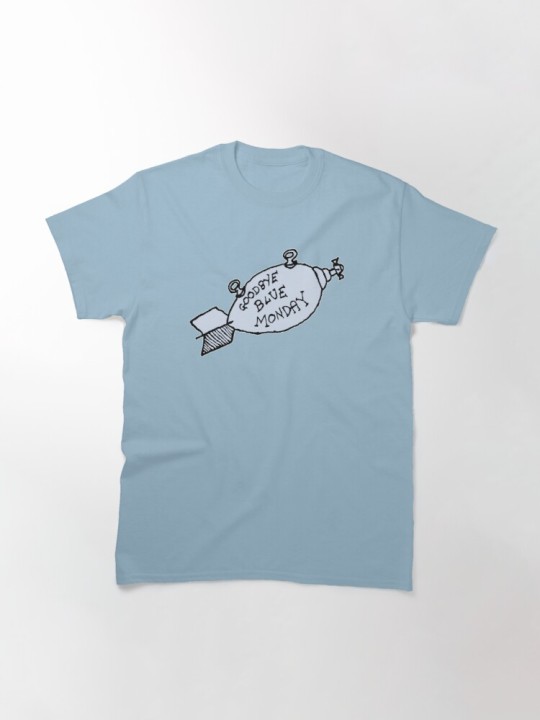




"We are here on earth to fart around, don't let anybody tell you any different." - Kurt Vonnegut Jr.
We have a range of t-shirts for sale in our Redbubble store, inspired by the wise words and unique illustrations of Kurt Vonnegut Jr. If that isn't nice, we don't know what is.
Available to buy online now in a range of colours, check out the full range here, individual links below:
Fart around.
Goodbye blue Monday.
Everything was beautiful and nothing hurt.
SOMEBODY.
Life is no way to treat an animal.
#kurt vonnegut#vonnegut quote#kurt vonnegut jr#so it goes#books#bookish#bookworm#book nerd#book addict#book shelf#book art#reading#literature#classic literature#fashion#t shirts#style inspo#summer fashion#gift ideas#gifts#design#redbubble
3 notes
·
View notes
Photo








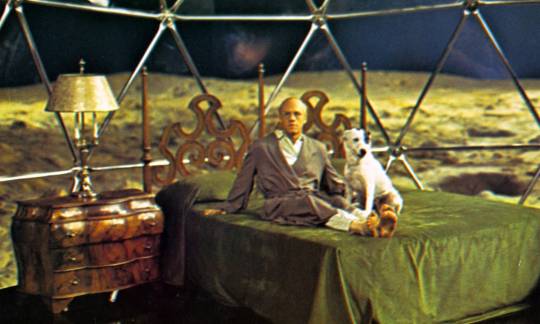
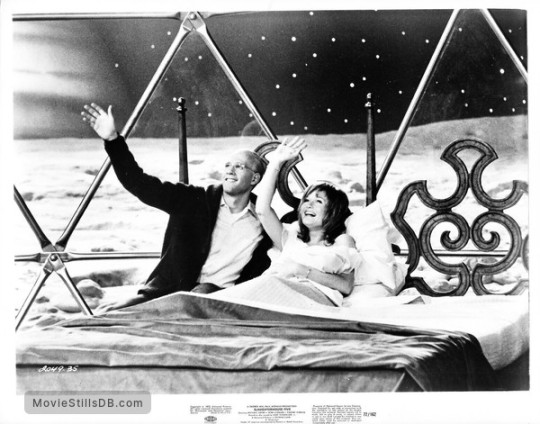
Tonight then Slaughterhouse-Five from 1972.
Cast:
Michael Sacks as Billy Pilgrim
Ron Leibman as Paul Lazzaro
Eugene Roche as Edgar Derby
Sharon Gans as Valencia Merble Pilgrim
Valerie Perrine as Montana Wildhack
Holly Near as Barbara Pilgrim
Perry King as Robert Pilgrim
and many more
Story:
Using his own terminology, Billy Pilgrim is "unstuck in time", which means he is moving between different points in his life uncontrollably, although he is aware of it at certain of those points as witnessed by the letter to the editor he writes to the Ilium Daily News about his situation. Primarily, he is moving between three general time periods and locations. The first is his stint as a GI during WWII, when, as a pacifist, he was acting as a Chaplain's assistant for his unit. This time is largely as a POW, where he was in Dresden the day of the bombing, spending it with among others an older compassionate GI named Edgar Derby, and a brash loudmouth GI named Paul Lazzaro. The second is his life as an optometrist in Ilium in upstate New York, eventually married to the wealthy and overbearing Valencia Merble, and having two offspring, Robert, who would spend his teenaged years as a semi-delinquent, and Barbara, who would end up much like her mother. And the third is as an abductee on the planet Tralfamadore, along with his devoted dog Spot, and Hollywood starlet Montana Wildhack - who was not averse to taking off her clothes to further her career - the Tralfamadorians who have put them on display. The more time he spends on Tralfamadore, the more he understands the meaning of what is happening to him. —Huggo (from IMDB again)
Thoughts: Okay, definitely headache alert! Billy Pilgrim jumps through his own life, back and forth - with not knowing where he ends up. His two kids which he had with his wife are also not easy for him. Robert changing from a delinquent teen to a man who's ready to serve in Vietnam (hello!) but with a sixty hairstyle in between. Barbara turns out to be like her Mom. The great point is the bombing in Dresden, on February 13, 1945 where Billy also ends up. His quiet point is a planet Tralfamadore where he then ends up finally. It's not bad, yet you should be prepared here. It's a very complex movie.
If you like switching around in your life, this movie is for you.
#slaughterhouse five#1972#movie review#michael sacks#ron leibman#eugene roche#sharon gans#valerie perrine#holly near#perry king#unstuck in time#world war 2#vietnam war#family#friends#delinquent teen#spot the dog#tralfamadorians#kurt vonnegut jr#based on book
2 notes
·
View notes
Text
“Rumfoord was thinking in a military manner: that an inconvenient person, one whose death he wished for very much, for practical reason, was suffering from a repulsive disease.” - Slaughterhouse Five by Kurt Vonnegut Jr
this whole book is getting to me but this one line in particular really does strike a cord.
for context, the main character is a guy named Billy who was a soldier in WWII and he’s in the hospital years later after surviving a plane crash and appears to be in a vegetative state. Rumfoord is an old army general in the same hospital room talking about the war to his wife. Billy overhears and says that he was in the war, Dresden specifically. Rumfoord thinks he’s just repeating what he’s hearing and wishes that Billy would die since he’s weak and no longer “useful” in this state.
0 notes
Photo

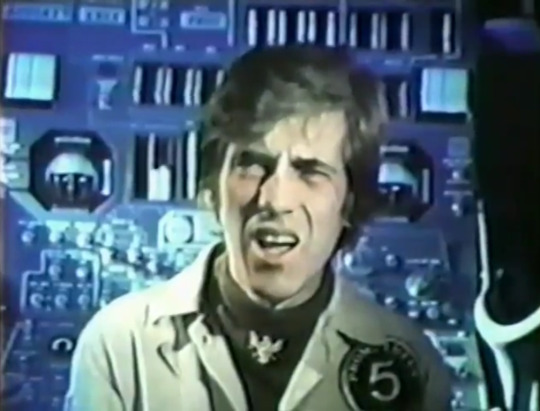
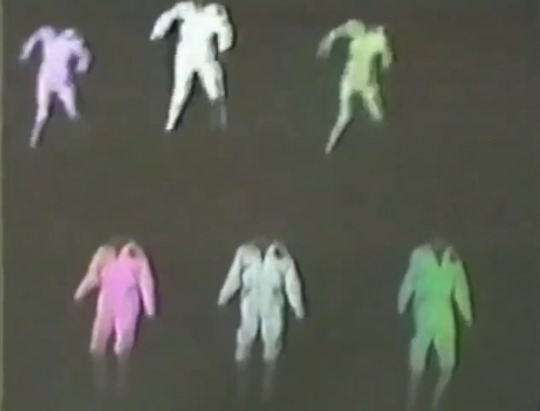


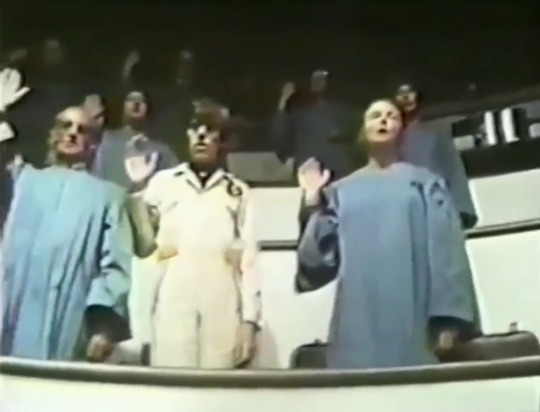
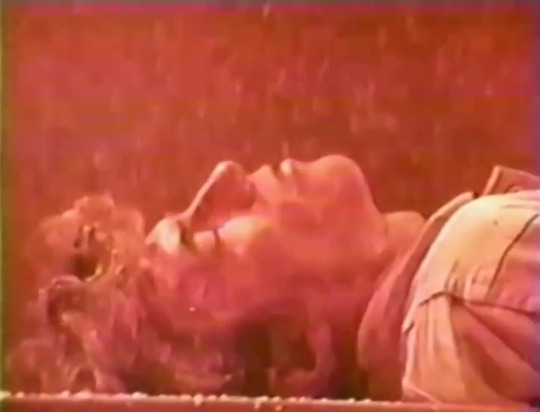


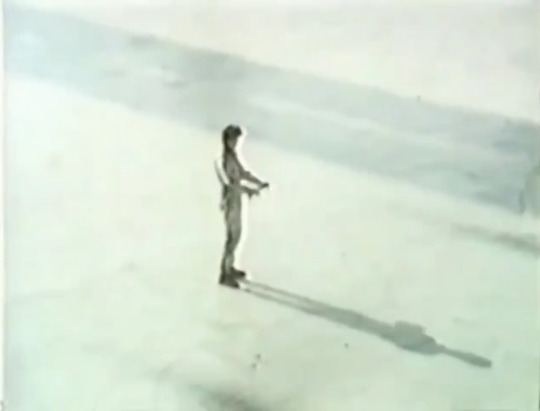
Between Time and Timbuktu (1972)
#between time and timbuktu#fred barzyk#kurt vonnegut#kurt vonnegut jr#bruce morrow#dortha duckworth#william hickey#ray goulding#bob elliott#franklin cover#talks
0 notes
Text


Jailbird, Kurt Vonnegut
This is 1 of 12 vintage paperback classics that comprise our current giveaw@y.
42 notes
·
View notes
Photo
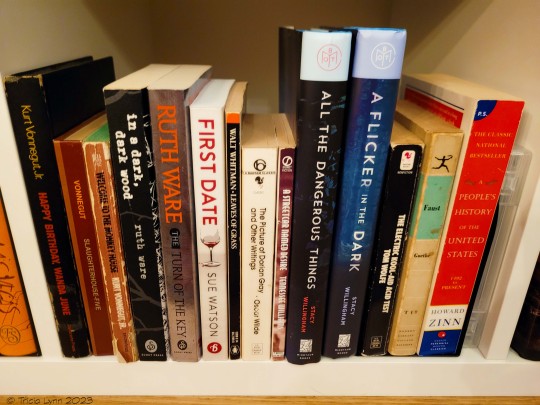
#my photo#books#book#bookshelf#read#reader#Kurt Vonnegut Jr.#Ruth Ware#Sue Watson#walt whitman#Oscar Wilde#stacy willingham#photography#s20#photographers on tumblr#decor
4 notes
·
View notes
Text
“I couldn't help wondering if that was what God put me on Earth for--to find out how much a man could take without breaking.”
#ooc: ❅ more bitter herbs ❅#❅ Kurt Vonnegut Jr-The Breakfast of Champions ❅#❅ it seemed appropriate ❅
0 notes
Quote
The funniest American of his time, Mark Twain, found life for himself and everybody else so stressful when he was in his seventies, like me, that he wrote as follows: “I have never wanted any released friend of mine restored to life since I reached manhood.” That is in an essay on the sudden death of his daughter Jean a few days earlier. Among those he wouldn’t have resurrected were Jean, and another daughter, Susy, and his beloved wife, and his best friend, Henry Rogers.
Twain didn’t live to see World War One, but still he felt that way.
Kurt Vonnegut - Timequake
the thing about this quote (and other similar ones by Vonnegut) is that at first it might seem like it’s just pure pessimism and hopelessness, but to me this is the basis for all empathy and compassion, because taking suffering seriously is probably the hardest to do, but without that, empathy and compassion are just incomplete and useless
3 notes
·
View notes
Text

Book Review
The Sirens of Titan by Kurt Vonnegut Jr.
What is the meaning of life? How is it possible that the richest man in America could be so unhappy? These two questions sound like the kind of trite cliches that serve as fodder for predictable Hollywood movies and cheesy novels on the bestseller list. But when taken on by Kurt Vonnegut Jr., in the earliest phase of his writing career, they get treated with a unique twist that only this singular author could pull off. The Sirens of Titan has earned its reputation as one of Vonnegut’s best and as an American classic as well.
It tells the story of Malachi Constant , whose name changes throughout the novel to mark different stages in his growth as a human being. He inherits a fortune from his father, who he never knew, and lives a meaningless life of debauchery, getting whatever he wants, and never achieving any sense of purpose. But we’ll come back to him later.
There is another important character who goes by the name of Rumfoord. He also is rich and lives in a mansion with his uptight wife Beatrice who thinks that other people are nothing more than pollution. She has preserved her virginity all throughout their marriage. Rumfoord doesn’t actually live in the mansion though. He lives on Titan, one of Saturn’s moons, and he travels through time and space with his dog, making occasional appearances on Earth that attract massive crowds of people who look to him to explain the meaning of life. Rumfoord can see the future and make things happen as he pleases. His purpose in the world is to start a new religion unlike the ones that already exist in that this new one will unite all of humanity rather than dividing us all, causing us to fight with each other interminably. His function in the narrative is to act as both chorus and deus ex machina. You could say he is Vonnegut’s doppleganger since the author of a novel is the god and creator of the world inside his writing. But Rumfoord clearly explains that he is not God even though he has godlike powers.
So getting back to Malachi Constant...Rumfoord arranges to meet with him and tell him about his future. Constant is to travel into outer space where he will impregnate Rumfoord’s wife Beatrice. Riffing off of Oedipus Rex, Malachi and Beatrice do everything they can to prevent this from happening and yet it happens on a flying saucer that is taking them to Mars.
Vonnegut’s mastery of writing technique is on display here in the way the narrative shifts to Mars. And this is Mars the planet, not Mars, Pennsylvania. Yes there really is a town called Mars in Pennsylvania (and if you think that’s crazy, there is also a town called Bucksnort in Tennessee, a town called Truth or Consequences in New Mexico, and a city called Batman in eastern Turkey). Vonnegut creates a dramatic contrast in time, space, and narrative structure with these dramatic disjunctions of location and the accompanying dissociative fugue suffered by his characters. This technique has come to be a characteristic of postmodernist fiction, but something tells me Vonnegut cared little for that kind of labeling. The section about Mars starts with an army private named Unk who has been brainwashed so that he can remember nothing of his past. Unk, along with all the other soldiers, has electrodes placed under their scalps and are remote controlled by commanding officers to obey orders or else suffer excruciating pain. Unk, along with everyone else in the army, had formerly been a disgruntled Earthling who got recruited to Mars where Rumfoord builds an army. His plan is to invade Earth. Unk’s memory starts to return and he finds a letter he wrote to himself before they performed the brainwashing surgery. The letter tells him he has a wife and son on Mars and his duty is to rescue them so they can return to Earth and live as a family. But when he finds them them, Unk ;earns they have no interest in him or his plans. Here we learn that Unk is actually Malachi Constant after having his memory erased and his wife is Beatrice. Just like Oedipus and his mother Jocasta, Malachi and Beatrice can not escape their fate and their son Chrono is the result.
What can be gathered from this section is that, first, Vonnegut is critiquing the military. After being traumatized by his experiences in World War II, Vonnegut took every opportunity he could to remind us all that wars should never be fought. By constructing an army on Mars of brainwashed men without memory, unable to think, and capable of nothing but obeying orders, most specifically orders to kill without conscience, Vonnegut reminds us of the inhumanity of the military. It turns men into machines. At the same time, the contrast between Malachi and his Martian identity as Unk shows that he is developing as a human being. The pain he feels when he tries to disobey orders shows that he is becoming self-aware in ways that he wasn’t when living on Earth where he lived without effort or self-consciousness. Furthermore, when he found his letter and realized he had a family on Mars, his impulse was to rescue them; this contrasts sharply with the hedonistic and selfish Malachi who cared about nothing but promiscuity before coming to Mars.
The third stage in Malachi Constant’s growth comes when he returns to Earth and meets up with Beatrice and Chrono at the mansion owned by Rumfoord. The space-travelling millionaire had organized the army on Mars to attack Earth and lose the war. By doing so, the entire human race had to stop fighting with each other and unite in order to defeat the alien invaders. Vonnegut knew that humans achieve strength in unity mostly when they have a common enemy. In ordinary circumstances that common enemy is other people, but Vonnegut via Rumfoord depicts the benefit of having the entire planet fighting a common enemy and so the Martian invasion becomes a necessity. You would think the climate crisis would be enough of a threat to unite us in this way, but I guess we are too dumb to see that. Rumfoord uses the opportunity to start a new religion in which all humans cooperate, living in harmony and peace. This is one of three passages where Vonnegut explains his concept of what life is meant to be about.
Malachi Constant, otherwise known as Unk, receives yet another name when he arrives in a flying saucer. He is dubbed the Space Wanderer and he emerges from his spaceship in Maine with a beard and long hair, a bit Christ-like you might suppose. The satire of Jesus Christ does not end there. As the central figure of this new religion, plastic trinkets of the Space Wanderer hanging dead with a noose around his neck are commonplace among followers of this new religion. This is an obvious jab at the prevalence of the cross and Jesus crucified on it found in so many Christian homes and on so many t-shirts and necklaces worn by the Christian faithful. There is something perverse and sickly about the Christian fascination for the gory torture of their savior as if they take sadistic delight in seeing their messiah suffering in maximum pain.
When the Space Wanderer meets up with Beatrice and Chrono on a scaffolding on the walls of Rumfoord’s estate, Rumfoord climbs up into a tree and addresses them through a loudspeaker as if speaking with the voice of God coming out of the sky. But he isn’t God, he is just a man in a tree with a microphone. Anyhow, he confronts the family with their dilemma by asking if any of them have ever done anything that wasn’t entirely selfish. Being unable to answer the question, they board another flying saucer and take off again for outer space. The irony is that the Space Wanderer as Unk and Malachi Constant did do things that were beneficial to other people, trying to rescue his family from Mars for instance. He just lacked the self-awareness to realize he had done so. This passage represents the awakening of his morality and takes him further down the path to self-consciousness that will later distinguish him as a fully realized human being who understands the meaning of life.
The final stage of Malachi Constant’s growth comes when he arrives on Titan, one of Saturn’s moons, to find Salo, the companion robot to Rumfoord who lives there in a palace before he dies. Salo, being a robot who developed human emotions, has dedicated his life to serving Rumfoord but disassembls himself when Rumfoord sinks into a depression and tells him to leave. Rumfoord learns that he wasn’t the master of Earth at all and is, in fact, being used by forces in the universe he can never comprehend. His purpose, and the purpose of the human race is entirely mundane and everything we think we know through religion and philosophy is nothing but wrong-headed delusions of grandeur. But Malachi arrives with Beatrice and Chrono and since they are the only people on the moon, they are forced to take care of each other. Chrono disappears into the woods to live with a flock of birds and the two remaining people find happiness by taking care of each other. They learn that the ultimate purpose in life is to take care of the people around you. The ending of this novel is beautiful in ways that can’t easily be expressed in this review.
As mentioned before, Vonnegut gives three scenarios in which he depicts life as it should be. One, as already stated, is the religious gathering that happens after the Earth is invaded and the human race unites to win the war. Another instance is where Chrono, after abandoning his parents on Titan, goes to live with the birds in the forest; he becomes like the birds by learning to fly and transcends his own humanity by becoming a part of nature. The third instance is when Unk and Boaz’s spaceship gets redirected on its way to Earth and lands in a cavern on Mercury. Boaz is an African-American and the commanding officer of Unk. In the cave, he renounces his position as Unk’s superior and finds a species of creatures called harmoniums that nourish themselves with vibrations (there was a Canadian progressive rock band named after these creatures so check them out if you are so musically inclined). When Boaz plays music for them, they gather around him and he falls in love with them. Being an African-American orphan, he finds his peace in life by playing music for creatures that honor him with admiration. He also realized his responsibility to them when he finds they die if they get too close to his cassette player which is the source of his music. With love comes responsibility. This book was written when the Civil Rights Movement was gaining momentum and I’m sure that had something to do with his portrayal of the music-appreciating Boaz who wanted peace more than war. Notice how the people who find happiness in this story all have to leave Earth to achieve it.
Something should be said about the title too. In the narrative, the Sirens of Titan make only infrequent appearances. Rumfoord shows a picture of them to Malachi Constant in order to lure him to Mars with the possibility that he might get to sleep with them since they are more beautiful than any Earth women he has ever seen. After receiving this picture, it begins showing up in advertisements for cigarettes. I believe Vonnegut is commenting on the use of sex in advertising. The Sirens are used as a lure for Malachi, and used by the tobacco industry for commercial gain. But at the end of the book, Malachi finds the Sirens are actually a statue on the bottom of Rumfoord’s swimming pool at his palace on Titan. The pool is polluted with algae and the Sirens are covered with slime and muck, but Malachi doesn’t care since he has grown to live a life of devotion to his wife Beatrice and is no longer temped by lust. Promiscuity and profits are no longer relevant when he finds he has a purpose. This is emblematic of how he has reached full maturity as a human being. While the book is framed as being about the search for the meaning of life, I think that the underlying thrust of the novel is that Malachi Constant is a man like Howard W. Campbell Jr. in Mother Night and maybe even like Meursault in Albert Camus’s The Stranger (which I consider to be the most misinterpreted book in the history of fiction except for the Bible); he is a man lacking in self-awareness. He only begins to grow when he confronts himself and develop the self-awareness he needs in order to become fully human. This process of transformation is the whole point of the story.
There isn’t much to detract from this novel. You could say that Beatrice is underdeveloped as a character as so many of the politically correct will say. But ultimately, The Sirens of Titan has too much going for it for me to really care.
And it is amazing how ahead of its time this book was. Written in the 1950s, it expresses the values of the late 1960s counter-cultures on an uncanny level. It is pro-peace and anti-war, it expresses the desire for all humans to unite, it portrays an African-American man who finds the love and justice he desires though music no less, it calls for a new way of living in the world, it involves space travel, exoticism, and fantasy that approach the kinds of psychedelia that would later show up in movies like Barbarella. It also serves as a statement about how beautiful world peace could be while poignantly reminding us that such an existence will likely never be possible. But despite that, we can still find meaning in life. Vonnegut’s optimism had a bitter tinge to it that reminds the reader how human we really are. Unlike Icarus, we will never fly too close to the sun and maybe that is something good. The Sirens of Titan makes me feel that Kurt Vonnegut Jr. will be remembered as a great American satirist, humanist, and humorist along the lines of Mark Twain. I realize now how lucky I am to have read this.
1 note
·
View note
